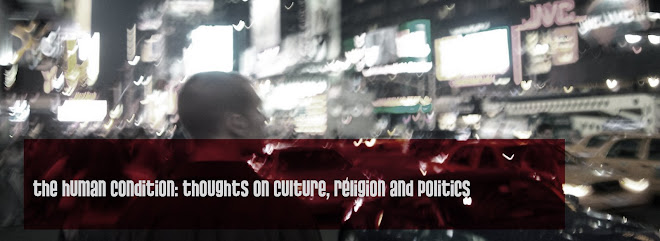It's very uncommon for me to read only one book at a time. I think this is evidence of my A.D.D., but I oftentimes come across others who do the same thing, so who knows? The problem with this habit, however, is that it's also rare for me to finish books, at least within the span of a few months. I still have yet to finish -even though it's listed as one of my favorite books- The Soul of Politics by Jim Wallis, 1776 by David McCullough, The Last Word by N.T. Wright, several books by C.S. Lewis, and A Generous Orthodoxy by McLaren. That said, I'm making a strong effort to finish the current books I'm reading, and not purchase any more until I've finished some of the others I already own. I also decided that it would be a good exercise to blog about what I've read in my current books, hence my current post.
On my lunches at work, I've been reading Banker to the Poor by Muhammad Yunas. I'm just over half way through, and have enjoyed it so far. It's basically the story of how he started the Grameen bank, which is a bank out of Bangladesh. Yunas, an Econ professor, was passionate about eradicating the poverty he saw in his country, and after visiting with several poor families he found that many depended on selling baskets. The problem was the loans they needed to buy materials were acquired from corrupt money lenders who had created a situation that kept the poor indebted to them for life. What Yunas discovered was the the poor were enslaved to these money lenders with no hope of breaking their cycle of poverty. To make a long story short, he started giving loans -tiny sums of money in American currency- to these poor people and charging them fair interest rates. This eventually evolved into a full-fledged bank, and Yunas won the Nobel Peace Prize. Among the struggles Grameen faced was attracting women borrowers, as Grameen started in Muslim areas that restricts women to the home. Another was constant criticism and ridicule by bank heads, and the economic establishment. One thing I've been pondering as I've read this book is how do the poor in America compare with the poor that Yunas works with? Yunas maintains steadfast faith in the poor that borrows from him, and with good reason as Grameen's repayment rate is nearly flawless. But would Grameen work in a setting such as the U.S.? This gets back to the worthy and unworthy poor discussion, as well as, provides a striking contrast between the poor here and the poor there. What kinds of oppression cause poverty here, and what kinds of oppression cause it there? But I digress.
The second book I'm reading is Democracy Matters by Cornel West. I'm only a chapter and a half into this one, but I love it already. West's prose reminds me of Jim Wallis' aside from the occasional obscure big word. I've read a lot of criticism of West claiming him to be an anti-American -a term that, I think, can be a good thing-, leftist, extremist. However, I've found him to be quite fair. He's spoken well of America throughout what I've read, treated Israelis and Palestinians fairly, and even mentioned Regan without slamming him. The only statement I raised an eyebrow to was his rosy portrayal of anti-war protesters as, "fellow citizens of goodwill, demonstrating in the streets." Without getting into a lengthy summary of what I've read, I'll mention a few insightful observations West makes about post-9/11 America.
I liked what West had to say about "free-market fundamentalism" and aggressive militarism in present day America. West rightly points out that the free-market drives the media, policy and values. Profit and wealth is held higher than the common good and the quality of life. West also discusses the championing of unilateralism and pre-emption by the Bush administration; the willingness to put young men and women on the line rather than finding other solutions. Some of West's solutions include Socratic questioning -constant examination of authoritative institutions-, prophetic vision -a love and commitment to justice-, and a "tragicomic hope," which is maintaining joy and hope in the face of adversity and oppression rather than resorting to revenge and hatred. I think this last "solution" is the most profound. Dr. West uses the example of the invention of the blues as a response to white supremacy. I would contrast West's example with Toby Keith's response to 9/11 with his redneck, dumbass, everything-that's-wrong-with-America anthem Courtesy of the Red, White and Blue. There is much more I could say, as I've only touched on a few topics that West writes about. Needless to say, I'm looking forward to getting further in this book.
The third book I'm reading, I will no doubt be reading for a long time. It's Jared Diamond's Guns, Germs and Steel. Guns, Germs and Steel, according to Diamond, are the tools that Westerners used to dominate other civilizations, and this book attempts to answer the question as to why people of Eurasia -people occupying Asia and Europe- acquired those tools. I recently made it through the first chapter which was a brief summary of the history of modern man. Essentially, what Diamond does is show the rescources that people, on each of the inhabitable continents, started out with. It was an extremely fascinating chapter, and showed that it would be relatively impossible to guess what civilization was destined to dominate the planet.
Well, so much for a nice liesurely post. I hope that anyone who decided to read this wasn't too bored, and will maybe be encouraged to check out one of these books themselves.
